Enhance efficiency with AI-driven document processing! Automate data extraction, reduce errors and speed up workflows with cutting-edge technology. Discover how AI transforms document management for businesses, improving accuracy and productivity like never before. Stay ahead with smarter, faster, and more reliable document processing solutions.
Table Of Contents
Integrating Artificial Intelligence (AI) into document processing has significantly changed how organizations manage and analyze large volumes of documents. By leveraging technologies such as Optical Character Recognition (OCR), Natural Language Processing (NLP), and Machine Learning (ML), AI-driven document processing systems enhance accuracy, efficiency, and compliance. These systems automate tasks such as data extraction, classification, and validation, which can reduce manual errors by up to 90% and increase productivity by 14% . In higher education, AI document processing can streamline various administrative tasks, including admissions and financial aid, ultimately improving student experiences and operational efficiency. For instance, AI can automate the processing of applications and transcripts, reducing wait times and enhancing the overall admissions experience.
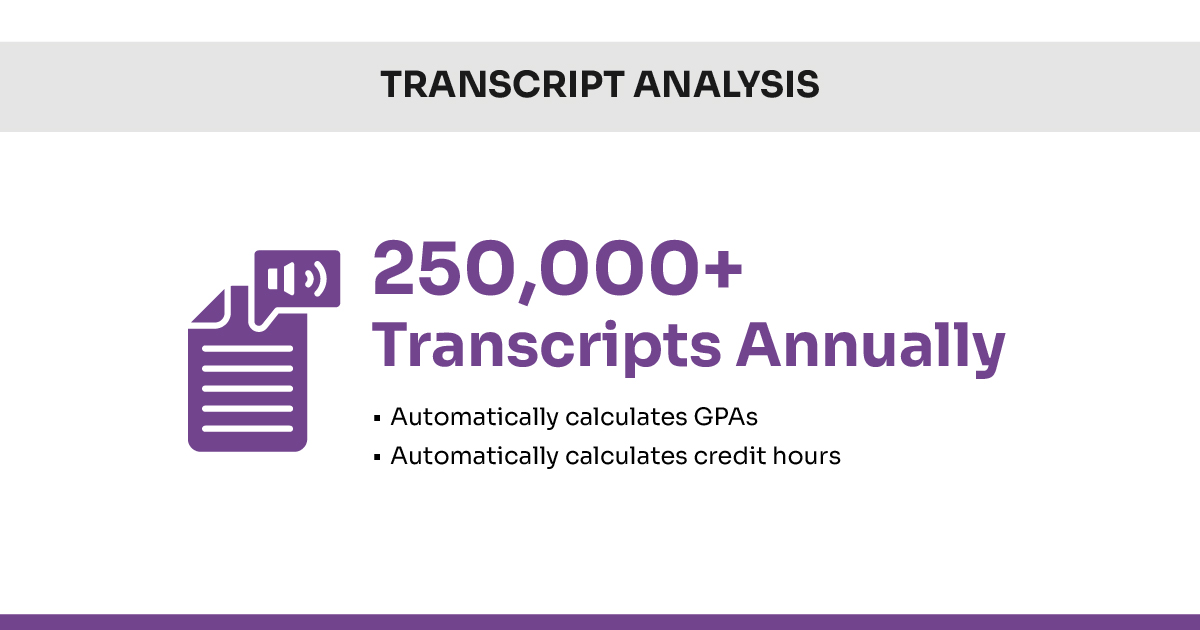
Furthermore, AI allows institutions to extract valuable insights from unstructured documents, such as emails and contracts, which supports better decision-making and strategic planning. As AI technology evolves, its role in document processing will expand, further transforming how institutions manage information and engage with students. By 2026, over 80% of enterprises are expected to utilize generative AI-powered APIs or models, significantly enhancing various operations, including document processing.
The Document Deluge: Key Challenges in University Document Processing
1. Unstructured Data Overload and Diverse Document Formats:
The admissions process involves handling various documents, including transcripts, test scores, letters of recommendation, and personal statements. These documents come in multiple formats, such as paper, PDFs, and digital submissions, making it challenging to efficiently process and manage them.
Manually extracting relevant information from these documents can be time-consuming and prone to errors.
2. Rapid Application Volume and Seasonal Peaks:
Enrollment and admissions departments face significant seasonal spikes in application volumes, particularly during peak admission periods. Managing these surges efficiently while maintaining accuracy and speed is a considerable challenge.
Delays in processing applications can impact student satisfaction and decision-making timelines.
3. Regulatory Compliance and Risk Mitigation:
Admissions departments must comply with regulations like FERPA, protecting sensitive student information. Mismanagement of documents can lead to legal and reputational risks.
Non-compliance can result in costly penalties and damage to the institution’s reputation.
4. Data Privacy and Security:
Protecting sensitive personal information, such as student records and financial aid documents, from unauthorized access and cyberattacks is critical. Ensuring secure access and storage of documents is essential.
Higher education institutions are vulnerable to cyberattacks due to disjointed systems and inadequate document controls.
Future-Ready Campuses: How AI Drives Efficiency & Student Success
AI-driven document processing transforms higher education enrollment and admissions departments by enhancing efficiency, accuracy, and student satisfaction. Here are some key benefits and supporting data:
1. Improving Student Experience:
Efficient Admissions Process:
Application Processing Speed: AI can automate the processing of applications, reducing manual review time by up to 40% and enabling faster decision-making.
Real-Time Updates: AI-powered chatbots provide instant responses to student inquiries, enhancing the overall experience by ensuring timely updates on application status. For example, by providing personalized support, Georgia State University’s AI chatbot reduced summer melt by 22%.
Similarly, EDMO’s Conversation Intelligence enhances student engagement with AI-driven chatbots and voice assistants. These tools deliver real-time, personalized support across multiple channels, from admissions questions to financial aid assistance.
2. Personalized Communication:
Engagement Boost: AI tools can tailor interactions to individual applicants, improving engagement through personalized messages and recommendations. This approach can lead to higher student satisfaction and better retention rates.
24/7 Support: Chatbots offer round-the-clock assistance, catering to students across different time zones and reducing frustration due to delayed responses.
3. Enhancing Administrative Efficiency:
Automated Document Processing:
Time Savings: Schools using AI-powered document processing have seen significant reductions in application review time, allowing staff to focus on more complex tasks. AI can boost worker productivity by 14%.
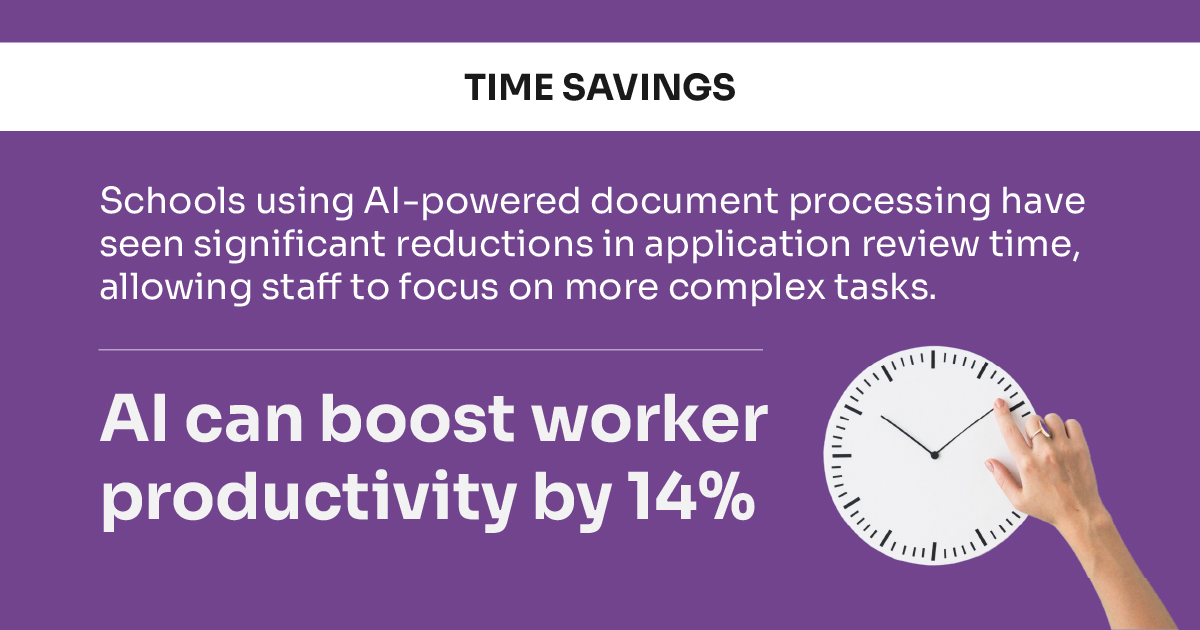
Accuracy Improvement: AI-driven systems can achieve high accuracy in data capture, reducing errors and ensuring qualified candidates are identified quickly. IDP solutions can increase data extraction speed by up to tenfold.
Just like EDMO’s Document Intelligence streamlines student application sorting, analysis, and evaluation, reducing manual workload and enhancing accuracy. By seamlessly integrating with major CRMs, EDMO facilitates quicker and more efficient admissions processing.
4. Streamlined Application Review:
Predictive Analytics: AI analyzes historical data to predict enrollment trends and identify successful applicants, guiding strategic decision-making. By 2027, 60% of higher education institutions are expected to adopt operating models combining physical and virtual capabilities, including AI-driven solutions.
Efficiency Gain: By automating routine tasks, AI enables admissions staff to allocate resources more effectively and enhance the overall efficiency of the admissions process.
Summary
AI-driven document processing revolutionizes higher education by enhancing efficiency, accuracy, and compliance. Using technologies like OCR, NLP, and ML, institutions can automate data extraction, classification, and validation tasks, reducing errors by 90% and improving productivity. AI streamlines admissions by handling large volumes of applications, minimizing delays, and ensuring regulatory compliance. Additionally, AI-powered chatbots enhance student engagement with real-time updates and personalized communication. Secure data handling mitigates privacy risks, while predictive analytics support better decision-making. As AI adoption grows, its role in document management will continue to expand, enabling universities to operate more efficiently and improve student experiences. By 2026, over 80% of enterprises are expected to utilize AI-powered APIs, transforming how institutions process and manage documents.
Also Read: 10 Performance Metrics to Boost Student Enrollment
Student recruitment in a post-COVID world
The science behind choosing the right chatbot for websites


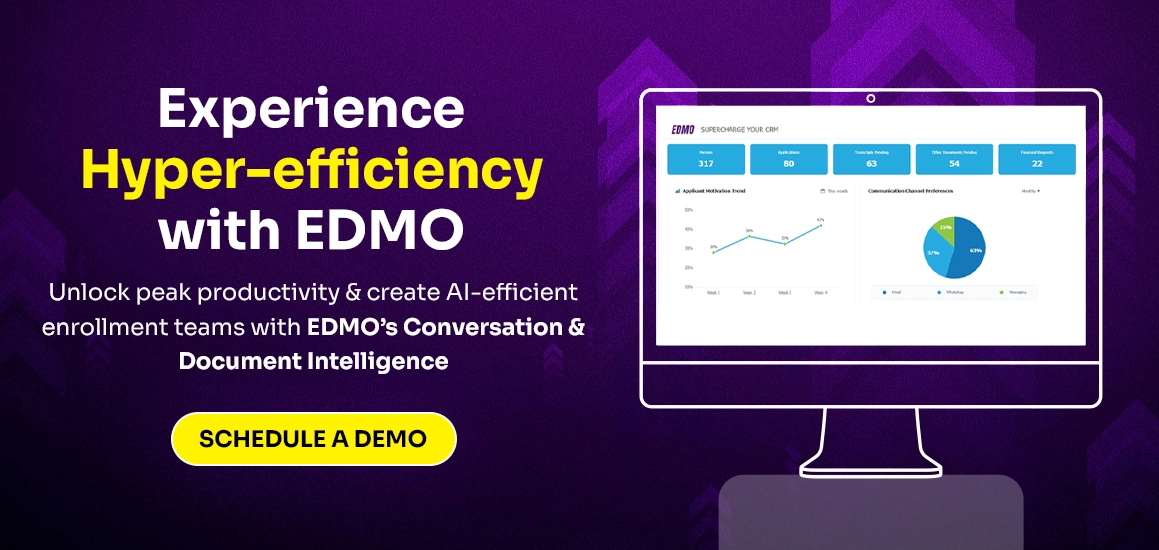





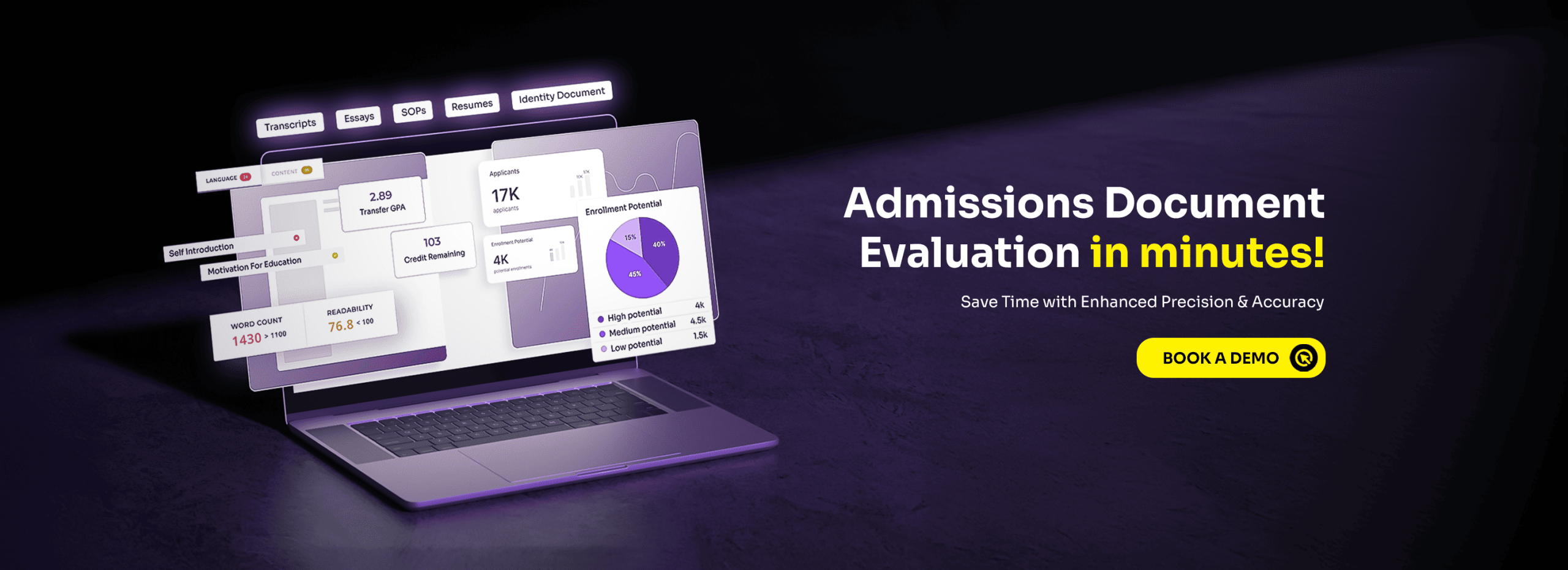
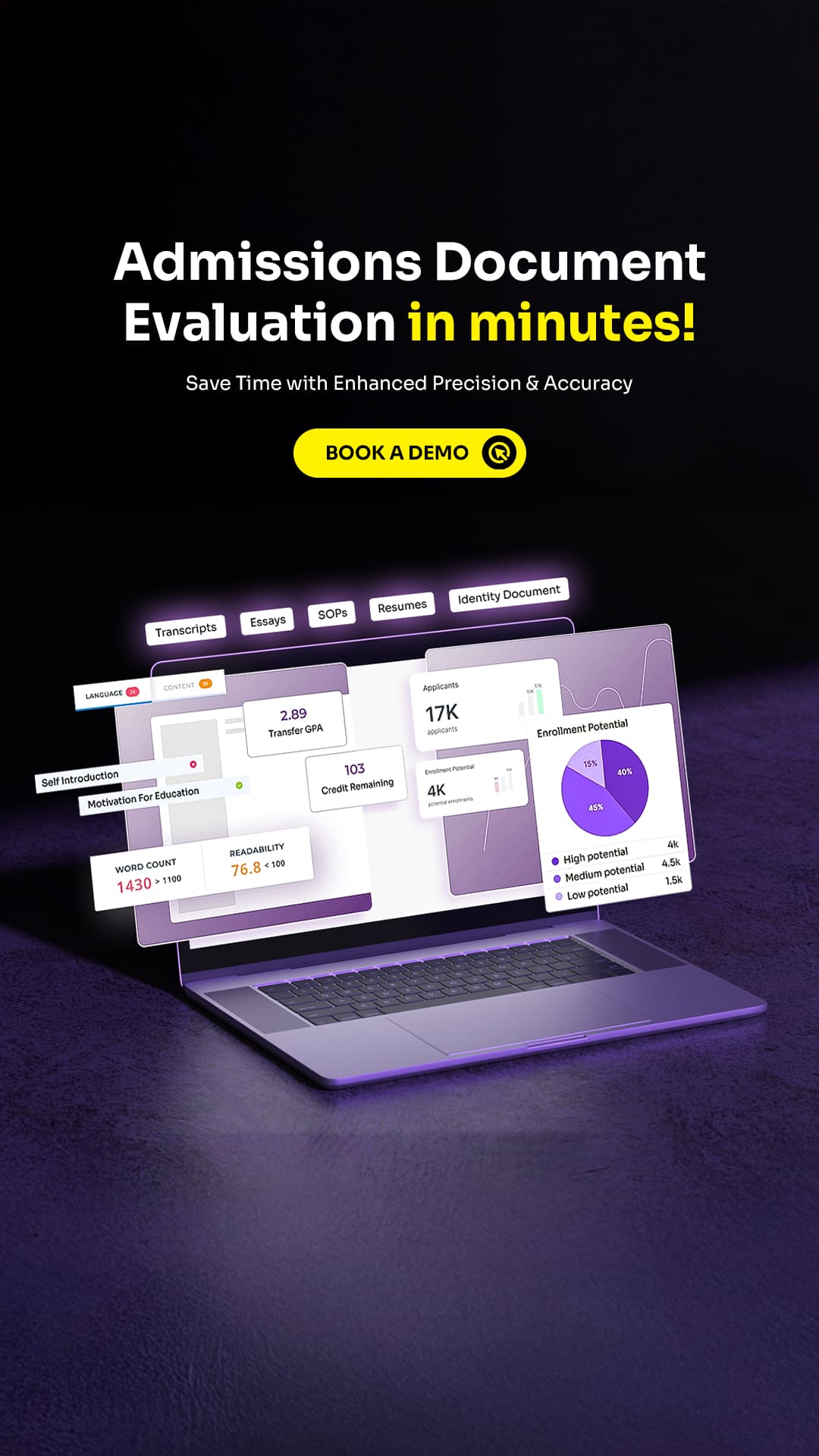
No comments yet. Be the first to comment!
Leave a Comment